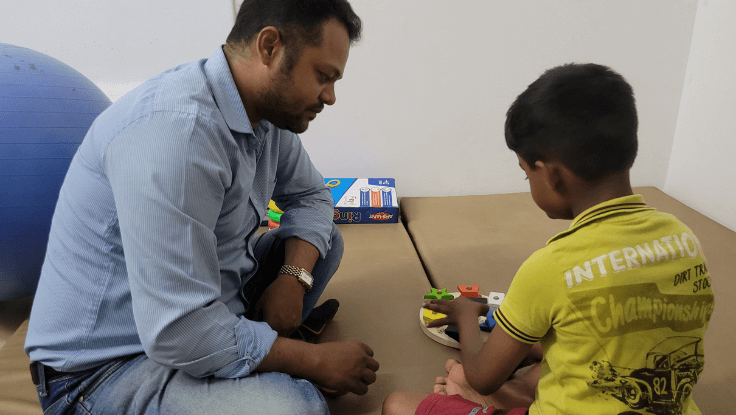Pediatric Services
- Exercises program for children
- Gait training
- Sensory integration
1. Cerebral palsy is caused by damage or abnormal development in the parts of the brain that control movement. These events can happen before, during, or shortly after birth or in the first few years of life, when the brain is still developing. In many cases the exact cause of cerebral palsy is not known.
Possible signs in a child include:
1) Delays in reaching development milestones – for example, not sitting by 8 months or not walking by 18 months.
2) Seeming too stiff (hypertonia) or too floppy (hypotonia)
3) Weak arms or legs.
4) Fidgety, jerky or clumsy movements.
5) Random, uncontrolled movements.
6) Muscle spasms.
7) Shaking hands (tremors).
2. Developmental delay
How does developmental delay affect a child?
Due to differences in brain development, they may process information or react to their environment differently than children of the same age. These delays can have an impact on a child's ability to learn, communicate, and interact with others.
What are causes of developmental delay?
These factors include genetics; parental health and behaviors (such as smoking and drinking) during pregnancy; complications during birth; infections the mother might have during pregnancy or the baby might have very early in life; and exposure of the mother or child to high levels of environmental toxins, such as lead.
3) Genetical disorders
Why is genetics important in physiotherapy?
Studies have indicated that genetic factors influence many, if not most of the diseases commonly encountered in PT practice. Genes appear to influence not only risk for disease, but also progression, outcomes and response to rehabilitation interventions.
Some genetic changes have been associated with an increased risk of having a child with a birth defect or developmental disability or developing diseases such as cancer or heart disease. Genetics also can help us understand how medical conditions happen.
4) Early intervention for high risk baby What is an Early Intervention Programme? An early intervention programme for high-risk infants typically begins within the first year of life. All early development (cognitive, motor, language and communication, and growth) is influenced by social and emotional development through caregiving relationships. High-risk infants are treated and supported according to their medical needs. Foundational Pillars of Early Intervention Family-Centered Practices. Children's Learning. Natural Environments. Adult Learning. Quality Teaming.





Enquiry